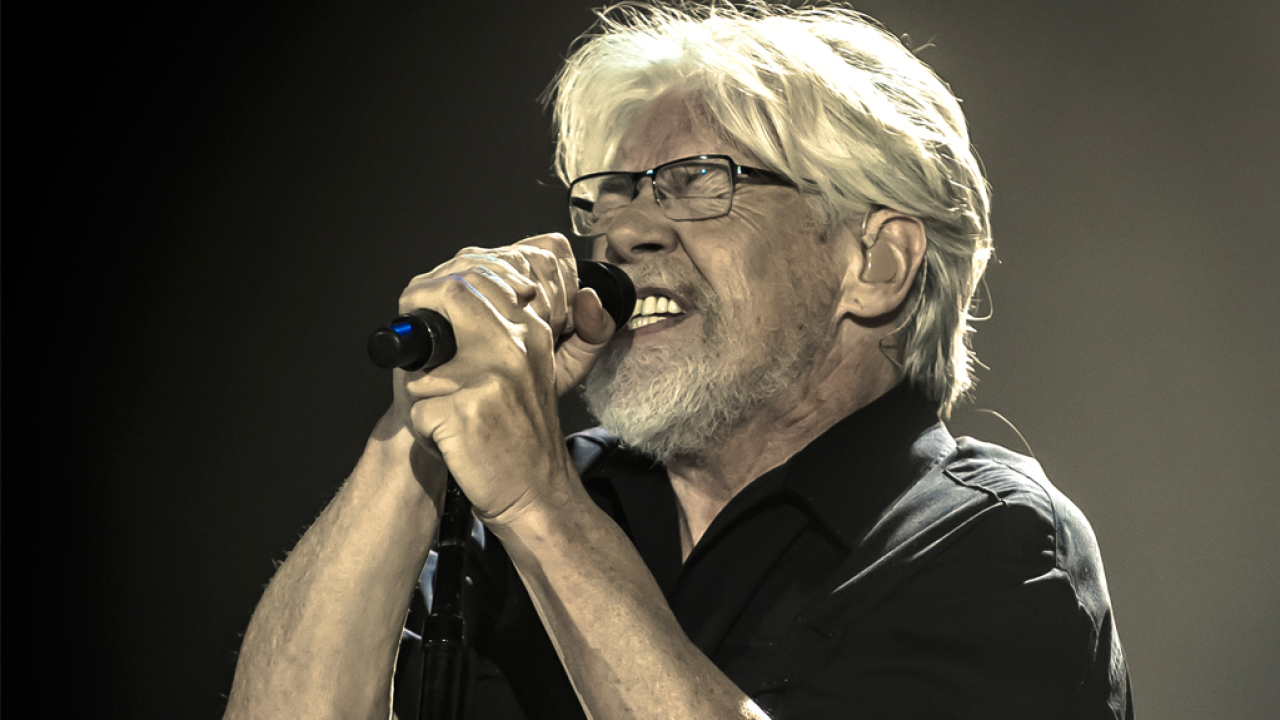Backstage after this show – a record 16th career sell-out at the 23,000 capacity Palace – Bob Seger and manager Punch Andrews are presented with Detroit Pistons basketball jerseys adorned with their names and the number 50.
The award is to recognise both men’s half-century in the business of rock, five long decades since Del Shannon funded the recording of Doug Brown And The Omens’ garage stomper TGIF (Thank Goodness It’s Friday). Released on Andrews’s label and featuring a young Seger on organ, it signalled the start of a career that’s now finally beginning to wind up.
Here in Detroit, Bob Seger is a very big deal. Iggy, Alice and Ted may have moved to other, warmer states, but Bob and Punch both still live locally. And it was downtown at Cobo Hall that Live Bullet, the album that launched Seger onto the national stage, was recorded. As the album exploded, the singer’s local stature was such that he could headline the Pontiac Silverdome in front of 70,000 fans, but pull only 1,000 the following night in Chicago, just a few hours away.
So it’s a home-town show, it’s almost the end of the tour supporting last year’s excellent Ride Out album, and Seger may not do this again (he’s hinted as much, fearing his voice won’t hold up to the rigours of touring any more). But there’s no hint of sadness. From the moment he strolls casually on stage to the strains of John Fogerty’s The Old Man Down The Road, he grins elatedly, punctuates the songs with stiff punches to the air, and points proudly at his musicians as they solo. It’s so unpretentious – and so un-rock-star-like – that watching Bob Seger is like wandering into a parallel universe where your kindly uncle wears a headband and sells out arenas, and the audience knows every word. It’s really quite something, hearing that many voices in a single room take on We Got Tonight or Night Moves. Or Turn The Page. Or Beautiful Loser. Goose bumps on goose bumps on goose bumps.
Seger’s lung capacity may have diminished as he nears his eighth decade, and the key of some songs has been adjusted to accommodate, but he hits all the notes he tries to hit, and what he’s lost in range he makes up for with a lovely, burred warmth. From the grand, cinematic opening of Roll Me Away to the genuinely angry green anthem It’s Your World – perhaps an ironic choice at a Motor City venue with no public transport links – the voice is centre-stage.
There’s no pyro, no special guests, no end-of-the-road shenanigans, just hat-tips to Bob’s fireman brother-in-law (the inspiration for The Fireman’s Talkin’, one of Ride Out’s bonus tracks), and sax player Alto Reed’s 92-year-old mum who the camera finds sitting quietly in the third row. It’s a masterclass in delivering big but keeping it low-key.
Hollywood Nights is immense, the shift from 1969’s Ramblin’ Gamblin’ Man to 2014’s equally zesty Detroit Made imperceptible, and the Silver Bullet band, while perhaps not firing with the youthful, now-or-never ferocity of old, still hit the target. In particular, guitarist Rob McNelley’s performance is inspired, whether he’s mimicking Stevie Ray Vaughan brilliantly on Hey Gypsy or delivering Like A Rock’s devastating, delicate solo.
Rock And Roll Never Forgets brings the evening to a close, and Bob is still pointing, and punching, and grinning. He’ll be missed by many when he’s gone, but tonight’s jubilant showing suggests the person who’ll miss Bob performing most may well be Seger himself. Legend.

